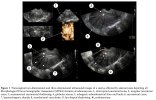Sly Saint
Senior Member (Voting Rights)
Linda Webb was in her mid-40s when she started experiencing abdominal discomfort. Over time, the pain became excruciating. She visited A&E and her GP multiple times for help, was admitted to hospital, as well as subject to a battery of testing, which could not explain her symptoms. After a year of back-and-forth, she required daily doses of oramorph, a liquid form of morphine, just to control her pain. “It was then my GP decided I was suffering from depression,” says Webb, a property consultant from Yateley in Hampshire. On medical notes, it was referenced that she was experiencing “medically unexplained symptoms” (MUS) – under NHS guidelines, if a diagnosis does not become clear after routine tests, then support through mental health services is suggested. But for some patients, like Webb, this just feels like the system giving up.
MUS: A common diagnosis
The ‘MUS’ diagnosis is now very common across all forms of NHS healthcare, accounting for 45 per cent of all GP visits and 20 per cent of all new consultations with specialists. Along with changes to NHS treatment guidelines just over a decade ago – suggesting that mental healthcare support should be offered to anyone found to have MUS – many doctors treat unexplained pain or other symptoms as if it is an expression of health anxiety. Unsurprisingly, patients with MUS account for 20 to 25 per cent of all frequent attenders to medical clinics. One GP working in South London said MUS was now a normal part of general practice, saying: “We exclude important diagnoses but sometimes we can’t always explain the symptoms.” But she added: “MUS seems to be a new word for ‘somatising symptoms’”. Somatic symptom disorder is when a person focuses on physical symptoms, such as weakness or shortage of breath, to the extent that it leads to psychological distress. In other words, another term for health anxiety. For many MUS patients, that may well be the case, but for others such as Webb, this process of channelling complex patients through mental health treatment in lieu of other treatments may lead to missed or mis-diagnosis. Worse, once MUS is on your medical file, patients and experts say it can potentially affect how future care is handled by the NHS.
MUS can be used in a derogatory way
Dr Dean Eggitt, a GP based in Doncaster, thinks that’s very possible. He believes diagnosis by algorithm is becoming a huge issue for the NHS. “When a patient doesn’t fit into this nice category, and you’ve explored several different types of categories, [MUS] can be used in a derogatory way. This patient is complaining about something, and we haven’t found a diagnosis, so it can be seen as if they’re making it up,” he says. Certain conditions that come under the umbrella of MUS, such as chronic fatigue syndrome, certainly affect the diagnostic process. “Once that condition is labelled on that patient record, and they come in and have something that doesn’t fit in another category, then you say it’s that. That also means that when a patient has that label, they’re likely also to have further medically unexplained symptoms. That’s the sad reality.”
'Somatising patients' were costing the NHS©The i Paper
In 2010, a paper presented to the health secretary Jeremy Hunt said “somatising patients” were costing the NHS £3bn a year and sought to find cheaper ways to deal with their distress than regular medical testing. When the IAPTS (Improving Access to Psychological Therapies) programme was first established as a better way to treat mental health issues in the NHS, giving patients more power to self-refer, part of the economic justification was that it could be paid for by savings from physical healthcare. Dr Eggitt does believe using mental health routes as a treatment is a useful approach, not a fob off – because suffering from unexplained pain or other distressing symptoms is enough to affect someone’s mental health. But in the current environment of an overstretched NHS, he admits, mistakes are made and for patients, it can feel like a dismissive approach.

